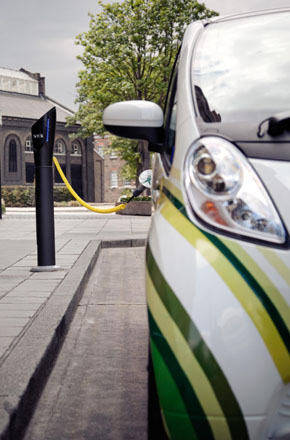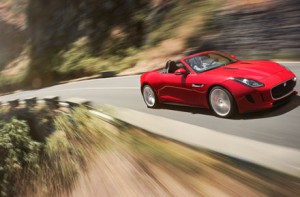
Special report: PROFESSOR STEPHEN GLAISTER, CBE
THE irony won’t be lost on motorists.
Even as we cope with an era of high fuel prices and with predictions of significant traffic growth in the future – as much as 40% in the next couple of decades mainly because of a big rise in population – the Chancellor is confronted with a worrying drop off in fuel duty and VED (road tax) revenue.
The reason?
The greening of the vehicle fleet brought about by more frugal petrol and diesel engines, the downward pressure on CO2 emissions of the government’s company car tax policy, and the expected take-up of electric cars.
“The Chancellor could put up fuel duty by as much as 50% by 2029”
Having said that, there has hardly been a rush to buy battery-powered cars – just 11,000 EVs (Electric Vehicles) were sold across the EU in 2011 – this is expected to change.
Indeed, policy makers are determined that it will change with an estimated 7% of European new car sales being electric by the end of the decade.
However this means that by 2029 the shortfall in motoring taxation in the UK will be about £13 billion (in today’s terms).
Unfortunately business car drivers and business car managers should also be worried.

Because however much we might like to think we are getting one over on the Chancellor, and however welcome any scrapping of the 3p January rise in fuel duty might be, it seems implausible that Mr Osborne and his successors in the Chancellor’s office won’t be coming after us armed with a long-term plan to maintain Treasury income.
Essentially there are three ways a chancellor could recoup his losses.
1) Push up the rate of fuel duty significantly over and above inflation, perhaps by as much as 50% by 2029.
2) Start placing road tax on battery powered cars, but at the risk of stalling the decarbonisation of road transport as drivers take offence at paying large sums for new technology only to see the anticipated savings from lower running costs shrink.
Indeed, the Chancellor has already started the process for company car drivers: from April 2015, the 100% discount from company car tax for EVs is replaced by a 13% company car tax rate banding, rising to 15% in the 2016/17 tax year.
3) Or introduce a whole new system of motoring taxation based on the idea of Pay As You Go (PAYG); that is, impose charges that are distance related but also bear some relation to levels of congestion. This would be an alternative to the current VED and fuel duty levies, not an addition to it.

It is worth noting that the Americans are already on to this, with the state of Oregon proposing a variation of options two and three above. According to reports, the Oregon Department of Transportation is looking at bringing in a distance based charge “on vehicles which average of 55 miles per gallon (mpg) or more.” Drawn into this net would be EVs, plug-in hybrids and normal hybrids.
A PAYG system of road taxation is the one to go for that associates drivers with the ‘externalities’ they impose on the rest of society
The Institute for Fiscal Studies has no doubt that a PAYG system is the one to go for. In a report commissioned by the RAC Foundation – Fuel for Thought: the what, why and how of motoring taxation – the IFS says PAYG would more closely associate charges to drivers with the ‘externalities’ they impose on the rest of society: air pollution, accidents, traffic jams, CO2 emissions amongst them.
This is a thorny subject but one which needs to be tackled. To be fair to the Chancellor he has already taken some tentative steps, announcing in Budget 2012 that the VED bandings would be reviewed to ensure drivers continued to make a ‘fair contribution’ to the public finances even as cars become more eco-friendly.
Company car drivers are already facing changes to the company car tax banding structure from 2013/14 that will see most company car drivers paying more benefit in kind company car tax.
Amongst the 35 million drivers in Great Britain – and a great many businesses – the price of fuel is arguably as common a talking point as that other national obsession, the weather.
Given the recent record pump prices and the fact that transport is the single biggest area of household expenditure, this is unsurprising.
It would be good if politicians devoted as much time to the subject as voters did.
Editor’s note

The Royal Automobile Club Foundation for Motoring (RACF) is a transport policy and research organisation which explores the economic, mobility, safety and environmental issues relating to roads and their users. The Foundation publishes independent and authoritative research with which it promotes informed debate and advocates policy in the interest of the responsible motorist. https://www.racfoundation.org







